#kdrama my mister my ahjussi
Text
youtube
This scene hits different now. It’s become more tragic.
Now, I imagine a different twist to the story beyond the camera: Lee Ji-an looking forward to having that delicious meal with her Ahjussi, not knowing that it will never happen because Park Dong-Hoon has passed away.
Ji-an finally found her comfort and peace in and through Dong Hoon. Too bad Lee Sun-kyun didn’t seem to have a real-life Ji-an to confide in and rely on and inspire him to keep on hoping against hope.
Rest in peace, Lee Sun-kyun. You will be missed.
#kdrama#kdrama my mister my ahjussi#my ahjussi#my mister#lee sun kyun#lee sun gyun#iu#lee jian#liee ji eun#park dong hoon#Youtube
8 notes
·
View notes
Text



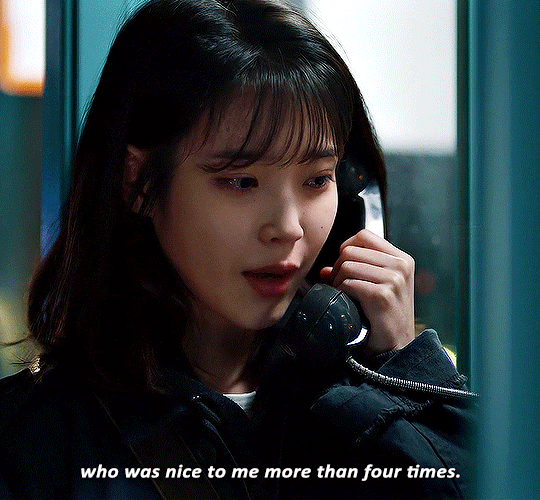
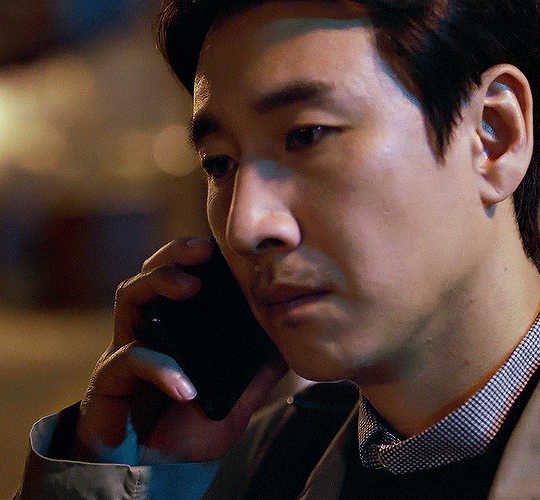
I'm tired of people who gossip eagerly about me.
MY MISTER (2018)
#my mister#my ahjussi#kdramaedit#kdramadaily#kdrama#iu#lee sun kyun#could've read my book last night but instead I scrolled through my mister eps and cried 👍🏼#*edits
481 notes
·
View notes
Text
why is it always "I love you" and not "I'm not going to fire you! It's childish to fire you just because you told me you like me. And if we ever run into each other after I fire you, we'll have to ignore each other and that already makes me get indigestion. I already have tons of people who make me feel uncomfortable in my life. And I'm not going to add another person on the list. I feel bad that I have to endure people like that. So I won't do that with you. [...] I'm going to attend you grandmother's funeral. And I want you to come to my mother's funeral. So just be honest with me. Don't try to suck it up on your own. From now on, I'm going to treat you exactly how I treat my teammates. So you can do the same. And be nicer to others. [...] It's true that the employees weren't that friendly to you. But I'll make sure they change, so you should change too. I'll see you work until the end of your contract. And you'll be complimented at your next job. So if we run into each other decades later, I'm going to greet you and I'll be glad to see you again. I'm not going to ignore you because we've become awkward. I'm going to greet you with a smile. Let's do that. Please. Let's do that. Buy me another pair of slippers."
#dont mind me im just deeply emotional 🤧🤧#my mister#naui ahjussi#나의 아저씨#lee ji eun#iu#lee sun kyun#kdrama#k-drama#이지은#아이유#이선균
207 notes
·
View notes
Text
I heard a great many things about My Mister before I went into it: a masterpiece, a truthful portrait of everydayness, a vehicle towards catharsis for the parts of the self weathered by everydayness, a moving story that is strongly anti-patriarchy, an ode to parental love and a child’s love and a sibling’s love and a friend’s love and other love that comes uninvited—all true. But I was not prepared for this story to be packaged in an affair and internal corporate espionage.
Here’s the premise: Do Jun-young, the young and haughty CEO of a successful building & engineering company, is in a power war with other senior members for the attention of their ailing, but still sharp, Chairman. Caught in between is a general manager, Park Dong-hoon, a decent, generous-to-a-fault man. Dong-hoon is the darling of the other faction in the office, and the task at hand for Jun-young is firing Dong-hoon. To Jun-young, who used to be his junior at university, Dong-hoon’s rise would amount to Jun-young's fall. Jun-young has little by way of a brain, few spineless right-hand men by way of brawn, and lots of money. For Lee Ji-an, the cold 20-year-old temporary worker with fortitude that comes with abject poverty and mounting debt and being a social reject, this is jackpot. She promises Jun-young that she could get Dong-hoon fired in exchange for money. In the process, Ji-an finds out that Dong-hoon’s wife has been cheating on him with Jun-young.
Here’s the heart: Dong-hoon and Ji-an embark on a relationship where they see in each other a reflection of themselves and then some. They are empty, broken people who constantly wonder why life happens to them, with neither the strength to ask what matters nor the inclination to face the music of the answer. They protect each other, from themselves and others.
Age has caught up to both of them—Dong-hoon, literally, he’s pretty much lived the same way for four decades; Ji-an, metaphorically, because at 20, she has already lived through the trauma of being an abandoned child, the disillusionment of a teen shunned by faux meritocracy, and the role of a care-giver without money or support. She is a child who had to grow up too soon in the worst way possible—taking the life of an abusive elder, who should have taken care of her, in self-defence. She is 30,000 years old, she thinks. He is 40, and that’s old enough, he thinks.
Ji-an’s survival instincts jerks Dong-hoon to a life that feels more urgent. Dong-hoon’s rule-abiding spirit shows Ji-an how to secure a life that could afford her space to breathe. It is Ji-an who protects Dong-hoon from being fired. It is Dong-hoon who tells the clueless Ji-an how to move in the world of adults, above ground.
Every other relationship in this show has a name. Sibling, friend, neighbour, parent, spouse, office senior, officer junior. But this one, of Dong-hoon and Ji-an, with their 20-year age-gap, has none. ("Platonic" does come close but I am still wrestling with that one.) They go out for dinner, witness each other at their worst and saddest, and tell each other what the other needs to hear the most.
The choice of this age-gap inevitably gives rise to the question of another affair, and this is where writer-nim Park Hae-young has me by the collar. My Mister feeds off the casual, crude, often-infantalising narrative of why young women are attracted to older men. That stereotype is bait, for those so easily bought into too many stories of the kind, to interrogate what about relationships outside the norm in civil society—relationships that do not have a name—terrifies them. The characters in the show who accuse Dong-hoon and Ji-an of having an affair are those assigned as antagonists.
PHY believes and says “Every relationship is fascinating and precious,” so why do we say no to making more of them as we age? The norms in civil society is a good reason, but maybe a superficial one. She maintains it's the simple act of being vulnerable that leads to building and treasuring relationships; one of those things we tend to lose as we "age". The facade to maintain as a successful person is at odds with being vulnerable so we have to fragment the contours of our love and maintain boundaries. It’s why the relationship between Dong-hoon and Ji-an is—and has to be—cemented on wiretapping and surveillance and the ugliness of baring your soul, against your will even.
At their workplace, Ji-an is only privy to Dong-hoon, the structural engineer working a desk job without many promotions under his belt for a man several years his junior. It is because Ji-an snoops around that she learns of the affair that sets the story in motion. It’s how she finds out that he is a husband who goes back to an empty house often. He is the middle child, bearing the weight of providing in the absence of a financially-independent elder brother and a younger one trapped in his own insecurities and failures.
But it’s also how she learnt of the love and grace he enjoys otherwise. He plays soccer with friends he has grown up with, he drinks with his siblings whom he has loved all his life, he is the favourite son to his mother. This kind man is the beating heart of his neighbourhood. There will be at least two dozen people who will chase around the streets of Seoul seeking vengeance should he have a scratch on his body. If he is in pain, his brothers will give up other responsibilities to be with him all night until blue hour. These scenes, and the ones in Jeong-hui’s bar, are brimmed with warmth, of love freely taken and given. It’s how Ji-an begins to fantasise having people to go back to, and to call your own. Her love for Dong-hoon is also a love to the world he brings to her, a world of community that sticks together.
When I watched My Liberation Notes, I sensed that PHY does not give a hoot about green flags and healthy relationships. She might look at those tweets and posts, laugh with her whole chest and mumble: cute but no. This is so very stark in Gi-hoon (Dong-hoon’s younger sibling) and Yu-ra’s relationship, one that is marked by the intimate act of cleaning up vomit. Love comes from unfiltered, almost disgusting, honesty, picking at things the other would never think of sharing to another being. Love is a muscle you have to use everyday. You have to be talking all the time; and somebody should be listening.
The scene that is tattooed in my heart is Dong-hoon whispering “Call me,” into the phone he knows she is listening to. This is after he learns the truth of everything, of her initial plans to betray him, of her surveillance. But as he tells her later: “Once you know someone, there comes a point where you don’t really care what they do. and I know you.” He knows her and now, he knows everything. That's all that matters.
In the final act of the show, loving truly as knowing fully is reinforced on a very unlikely character: Gwang-il, Ji-an’s abusive cousin, son of the man she killed for abusing her and their grandmother—and also the loan shark Ji-an owes to. It is through those surveilled tapes that we find out that before he was the son of a father who was murdered by a cousin he loved, he was kind. Ji-an was speaking to Dong-hoon, who knows this before us, the audience. That submission, those words she could never say to Gwang-il’s face, pushes the plot which began with a discreet affair to its conclusion.
When My Mister ends, things are slightly better for the characters than when we see them but it’s left ambiguous. The last 15 minutes of the show goes like this: four minutes of Dong-hoon, in his empty apartment after his wife has left for the US to join their son, engaged in chores and a snotty breakdown; Gi-hoon and Yu-ra’s fracturing relationship leading to a break-up; Dong-hoon's new company; Ji-an in her new job and friends she has started making there; Gi-hoon picking up a pencil to write a screenplay; and a final reunion between Dong-hoon and Ji-an one year after their last goodbye. I think PHY needs her characters to be people who find peace and who love and look out for one another, even if they remain broken.
That love doesn’t need to be forever. Ji-an stops listening to Dong-hoon’s phone after he finds out that she does. When she is about to uninstall the app from her phone, she registers the way his shoes hit the asphalt on the road, that dignified stride despite the hunched shoulders, and his steady breathing one more time. The footsteps recede; she isn’t listening anymore. Then they come back; love can also be a powerful memory, a fuel to someplace else to love more and be someone else. PHY’s thesis is so devastatingly haunting because she dares to tell you, with a jerk first and then gently like a goodnight kiss, that loving is both the very least and the most you can do while you’re here.
#my mister#my ahjussi#kdrama#lee sun kyun#lee ji eun#iu#one of 57 thoughts that has plagued me#i can't think of another writer who is so fearless in answering hard questions as much as in asking them#phy is very good at knitting nuance through the broadest range of characters and that's why you can't take away a single one of them#watch this show for dong-hoon and ji-an#but also watch it for all the others who will live with you long after it's over#(forgive typos please it's sunday and i am tired from feeling)#notes
170 notes
·
View notes
Text
My Mister is my favourite kdrama and when I heard that the same writer had written My Liberation Notes, I was SO EXCITED. Both of these shows are my favourite at this point.
Both these shows are similar in the themes they discuss but they differ slightly in one way, in my opinion.
My mister explores themes of loneliness, isolation and interpersonal relationships while also STICKING TO A PLOT. It says, here, I want you to care about these characters and their lives and their pain as a result of their narrative and the things that have happened to them so far.
You root for Ji-an because she endures. You root for Dong-hoon because he endures. Everyone in My Mister has gone through things that they can point to, and say, here it is. The thing that is causing my misery. Here are these characters stuck in their respective repetitive loops of pain and unending suffering. The characters in My Mister have character traits that make them interesting.
My Mister as a show, tries to be interesting. And succeeds. The plot and the characters and the writing compliments each other and we get a great show. We follow a narrative while also starting to empathise with the characters.
My Liberation Notes, on the other hand, doesn't give a fuck about being interesting. It's not here to serve plot, it's here to serve character. While not having the most interesting or intricate narrative, mln has so much character. It does not try to or pretend to be interesting in order to attract viewership. It's going to say what it needs to say without wearing an armor of plot.
In mln, the things that cause misery cannot be pointed to. They cannot be spoken of casually. With few words. They cannot be compounded into a few sentences.
How is Mr.Gu supposed to sum up the extent of his pain? Why he's in a house, so far from Seoul? How is Mijeong supposed to say why she doesn't want to join a club? How should she talk about how everything and everyone feels like work? How should Gijeong sum up why she's willing to love anyone at all before winter? How can Chanhee tell you why he's desperate for a car?How can they tell you all these things in a sentence?
I love how mln doesn't shy away from depicting monotony AS IT IS. Nothing about mln is embellished or improved or dressed up. It's why when Mijeong says to Mr Gu, "WORSHIP ME", it hits. You understand her. It makes sense.
Mijeong or her siblings or her parents or Mr Gu do not have inherently interesting "main character traits ".
They are all human in the most human way and they are trying to live and this is what makes them interesting.
I find so much comfort in mln because its realistic. Sometimes, there is no plot to hold up our lives. Sometimes, we can not go outside and point at the thing we want to be liberated from. Sometimes, you're quiet at the dinner table. There are no plot twists that can be used to make us interesting.
#my liberation notes#my ahjussi#my mister#lee jieun#kdrama#iu kpop#kim ji won#lee sung kyung#son seok koo
182 notes
·
View notes
Text
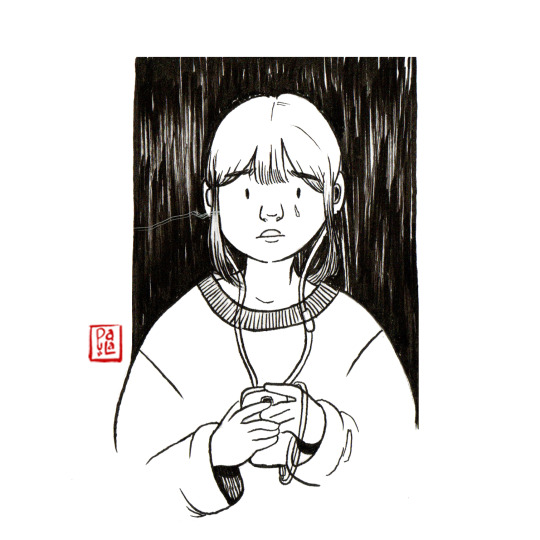
day 1: Jian, My Mister.
#inktober#kdramas#my mister#my ahjussi#iu#lee jieun#this year i decided to make a inktober just about my favorites dramas.#illustation#paulabohr#inktober2023
14 notes
·
View notes
Text

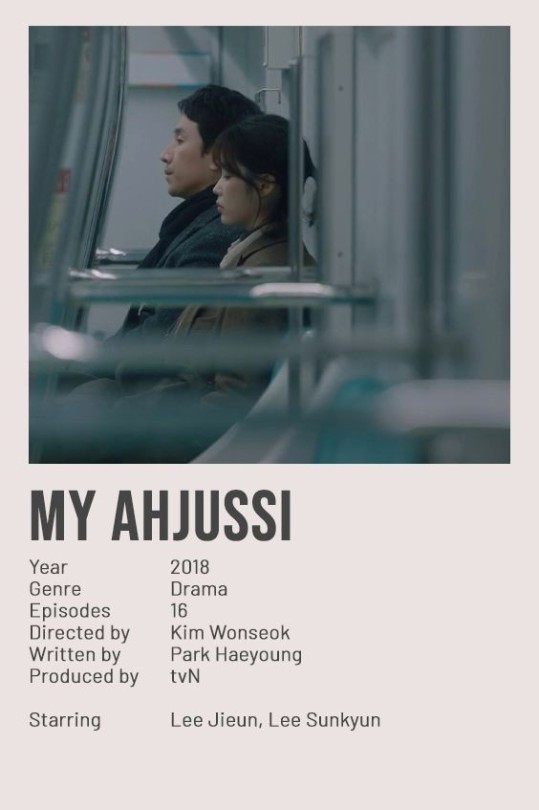
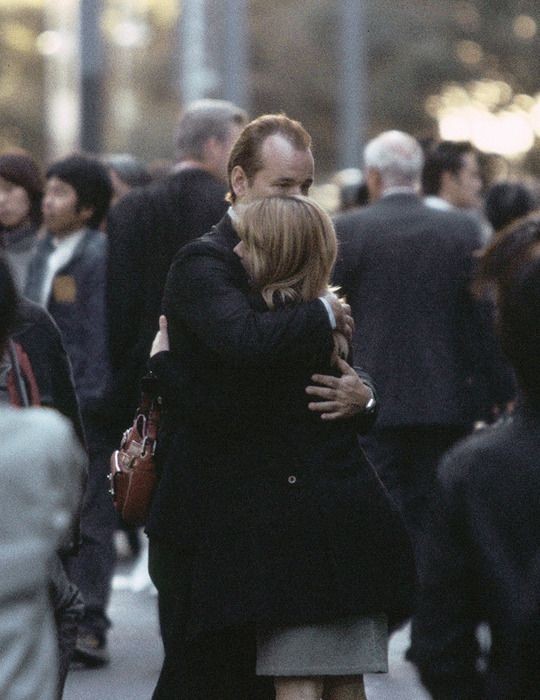
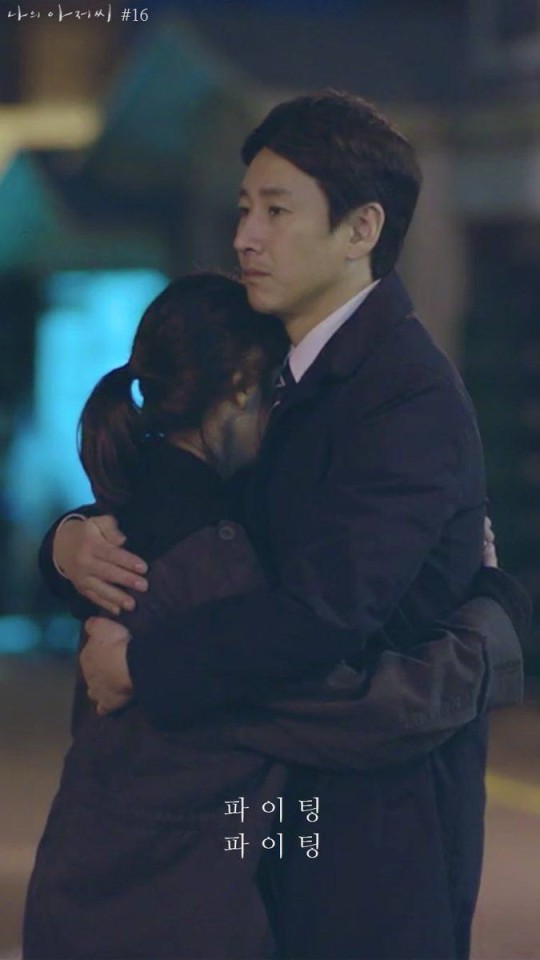
Soul mates who meet to save each other...
#lost in translation#my mister#my ahjussi#scarlett johansson#iu#bill murray#lee sung kyung#movie#kdrama#perdidos en tokio
223 notes
·
View notes
Text
Contradicting similarities. Struggles in between the chaotic muse and struggles from within the cold darkness.
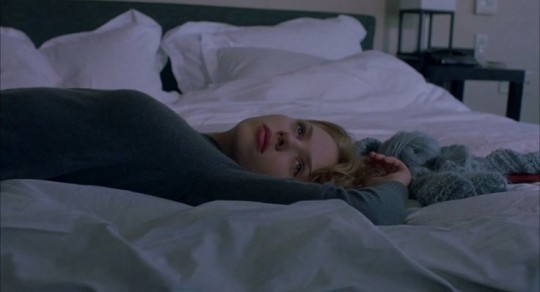
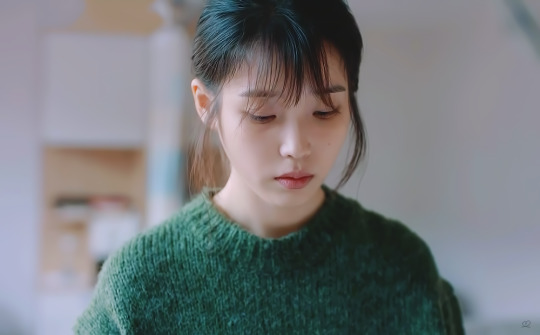


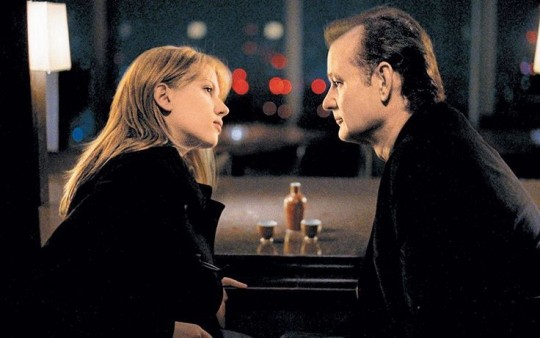
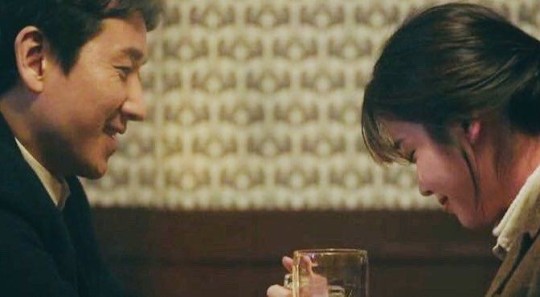

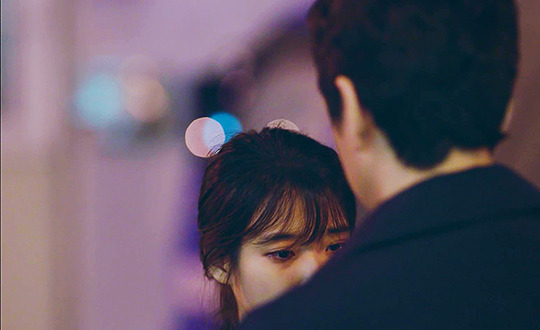


@yaz-so forever an icon for starting this
#my mister#my ahjussi#lost in translation#I wish I could fit more pics in a single post#maybe I need another post??#scarlett johansson#iu#lee sun gyun#lee sun kyun#kdrama#bill murray#film
119 notes
·
View notes
Text
'My Mister' and Incorporating Life’s Painful Truths
by Isobelle Cruz [April 29, 2022]
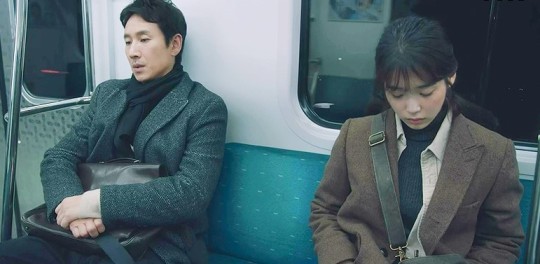
Lee Sun-kyun and Lee Ji-eun as Dong-hoon and Ji-an in tvN's 'My Mister'
There are several gems in Korean Dramas that depict the realities of life and growth, and ‘My Mister’ written by Park Hae-young is definitely one of them. Instead of pursuing the plot of another typical love story and corporate lifestyle, 'My Mister' tells the story of a man and woman, with over a twenty-year age gap, finding in each other their shared need for growth and healing in the frightful environment that society has become.
Without much skinship and hardly any heart-fluttering words of love and need, the show was able to intrigue its watchers and have them feel heartbroken and compassinate for the characters nonetheless.

Lee Ji-an portrayed by actress Lee Ji-eun
REALISM
Park Dong-hoon, a man in his 40s, is wrongfully accused of accepting a hefty bribe at work. Lee Ji-an, a temporary employee and subordinate in the same department, helps Dong-hoon with the case and asks for dinners in exchange for her deed. In the midst of external conflicts and other similar misfortunes which both Dong-hoon and Ji-an face, the two form an odd relationship that gives each other the ability to grow.
Feign ignorance. Keeping one informed may be a sign of friendship among kids your age, but adults don’t work that way. Feigning ignorance is a loyal and polite thing to do.
Park Dong-Hoon, episode 6 of 'My Mister'
Hae-young incorporates a lot of lessons garnered from the sensitive topics and conflicts of the world, which is what I’d consider scarcely found in K-Dramas, especially the ones centered around romance. Unlike what we usually encounter on TV, ‘My Ahjussi’ clearly depicts the troubles of poverty and failure without glossing over its truths.
It's easy for people who have money to become good people.
Lee Ji-an, episode 5 of 'My Mister'

Episode 7 of 'My Mister'
ACQUAINTANCES OR LOVERS
The show did not make me wish so much that Park Dong-hoon would reciprocate Ji-an’s likeness for him, but it doesn’t mean I was completely against the thought. I simply found the status of their relationship to be realistic and not lacking in any way that it needed to be more than what it already was.
Then why are you crying? – Because I’m happy. I’m happy that I’m close to someone like him. I’m happy.
A conversation between Ji-an and her grandmother
The happiness Ji-an feels alone to have had Dong-hoon in her life was enough for me. And was implied, enough for her as well. Ji-an’s feelings were inevitable, especially for someone of her age and someone who had experienced so little of the care she receives from Dong-hoon before.
I really lived my life for the first time ever because of you, Mister.
Lee Ji-an, episode 7 of 'My Mister'
Only in her early 20s, Ji-an is already the breadwinner of her small family and struggles with a drowning amount of debt and abuse. Yet despite her "damaged" background, Dong-hoon remains in her life. They both remain in each other's lives until they were both filled with the will to completely live.

The Park family on episode 8 of 'My Mister'
THE PARK BROTHERS
Screenwriter Park Hae-young was able to make every character that appeared on screen to be relevant and either admirable or loathsome. The Park brothers, Sang-hoon in particular, stole my heart and received all of my admiration and tears. Although neither are generally considered “successful” in the working field, Sang-hoon and Ki-hoon are able to make their misfortunes seem easy to tolerate--always finding a way to have a laugh at the right times and help whenever they could.
My life is already in ruins, so what's the point of crying?
Park Sang-hoon, eldest of the Park brothers
Resilience is often seen as idealistic or a display of maturity, but I usually view it as a pitiful thing to obtain. Because the chances that the most resilient people we know may carry the heaviest burdens are high. To witness such unfortunate people smile ear to ear is a painful but understandable encounter.
Rather than letting you escape from the living world and into a completely fictional one, ‘My Mister’ allows you to understand and prepare for life even further. If you’re seeking to go through sixteen episodes of a slow-burn type of love for the biggest tear-jerker on the final episode, then 'My Mister' is just the right choice for you.
(Click HERE for Writing Commissions)
#IU#Lee ji eun#lee ji-an#my mister#my ahjussi#park hae young#park dong hoon#tvN#tvn my mister#tvn drama#tvn show#kdram#kdrama review#lee sun kyun#netflix kdrama#나의 아저씨
132 notes
·
View notes
Text
so exactly what the f*ck is it with buying slippers and ripping my heart out in k-dramas. someone tell me exactly what it is bc Jang Hyun completely shutting down to shield himself from opening up to Gil Chae even further by diverting the conversation about her dream with the assumption that she asked him to buy her slippers before then asking her to lie to him (in so many words) so he can use this as an excuse to not leave is THEE genderswapped!Joseon semi-parallel of Park Dong Hoon standing in the middle of the road basically confessing to Lee Ji Ahn by saying he's not going to fire her or stop talking to her and then asking her to buy him slippers again as (surprise surprise) an excuse
#tv: my dearest#tv: my mister#my dearest#mbc my dearest#my mister#my ahjussi#나의 아저씨#namgoong min#nam goong min#ahn eun jin#lee sun kyun#lee ji eun#iu#kdrama#local gay watches My Dearest (and is subsequently f*cked up).txt#local gay watches k-dramas.txt#these old men are so sick and twisted for this. so sick as twisted why are they coming into my house with their words and their#f*cked up coping mechanisms and their EYES and talking to the women they're in love with like that. why do they think#they can get away with it#they do get away with it bc both dramas are literally some of the best i've watched in my life so they know what they're doing
14 notes
·
View notes
Text
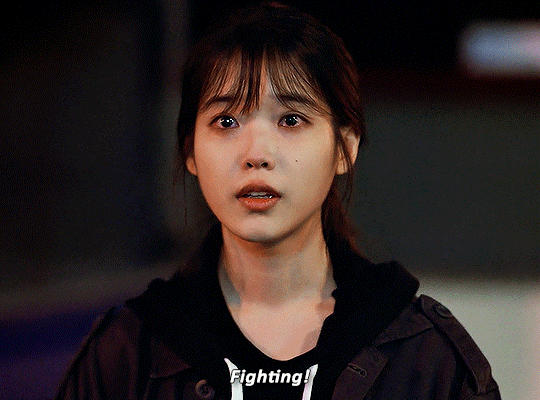
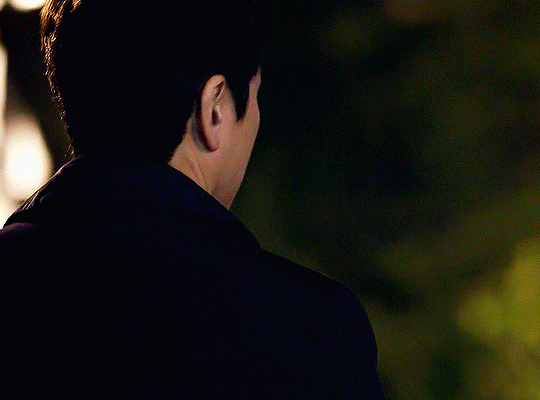
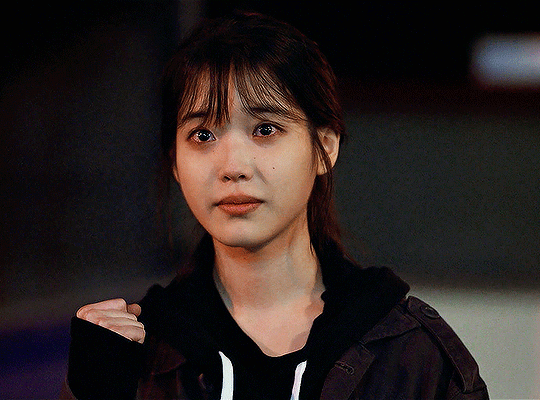
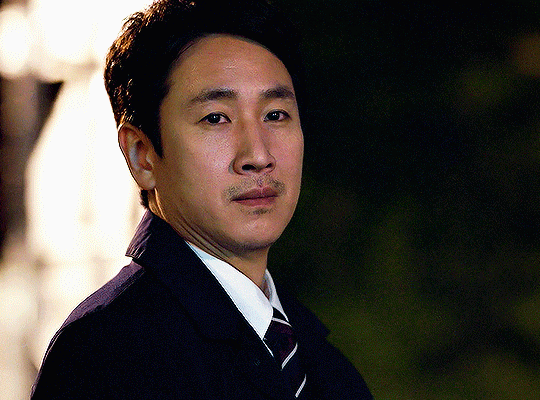
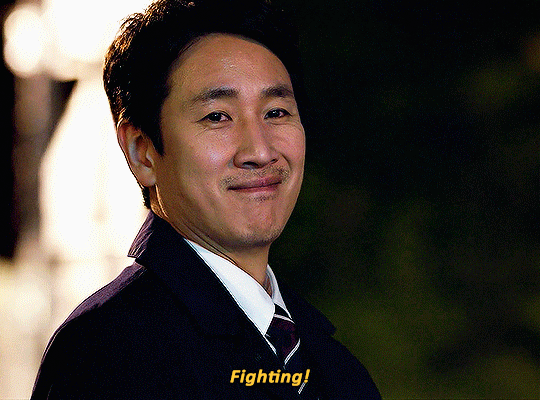

MY MISTER (2018)
#my mister#kdramaedit#kdramadaily#my ahjussi#iu#lee sun kyun#kdrama#they do not think about the gifmakers when they light and color grade these scenes#but they do think about making me cry#I MISS THEM#*edits
756 notes
·
View notes
Text
There is a line in the penultimate episode of “My Ahjussi” (나의 아저씨) — or “My Mister” — where Lee Sun-kyun’s character offers encouragement to a despondent young woman:
“When you feel like you want to die, don’t die. You’re a good person. Hang in there. I'm cheering for you."
I’m guessing that many fans of the late Korean actor thought of that scene when news broke that Lee had died (most likely by suicide) this past December 27.
Though Lee is best known internationally for his role as the wealthy Mr. Park in the Academy Award-winning 2019 film “Parasite,” “My Ahjussi” is one of his best pieces of work. And if you’ve been on the fence about watching it… or you’re looking for a thoughtful series to watch that also deftly tackles socio-economic issues, I highly recommend this 2018 series.
6 notes
·
View notes
Text
I'm watching ahjussi for the third time and i know i will cry my eyes out with almost every chapter. And I love it.
10 notes
·
View notes
Text





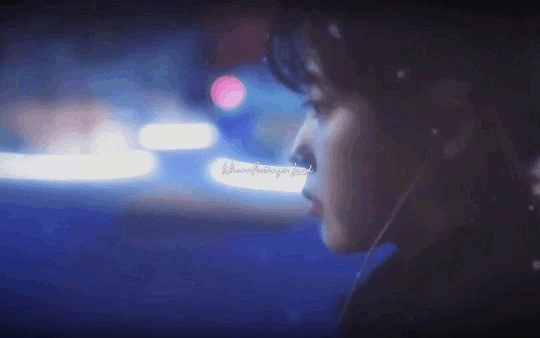
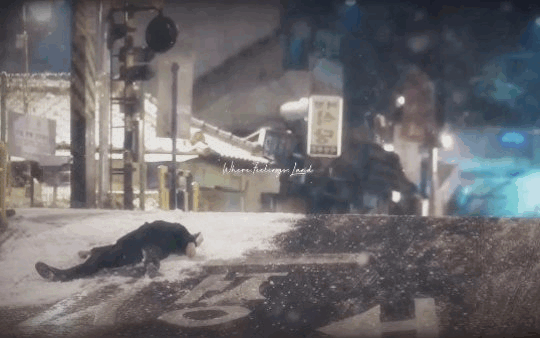


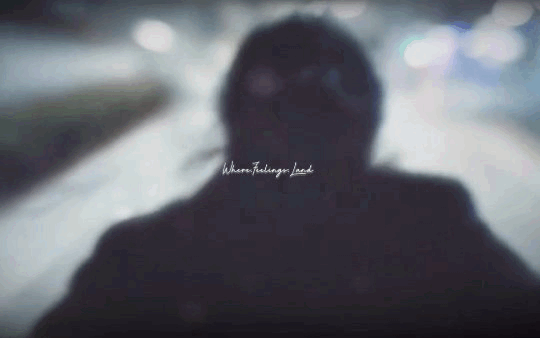
10 notes
·
View notes
Text
my mister rlly was all about being quiet together and understanding and being understood in exactly the way u need without saying a word
42 notes
·
View notes
